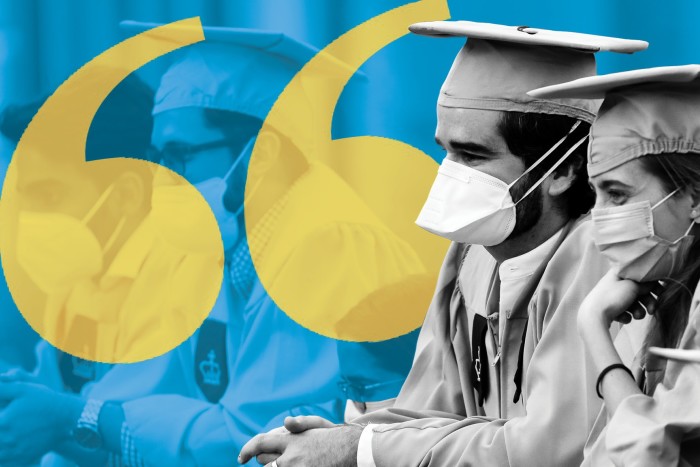Employers are in for a wave of post-pandemic litigation


Roula Khalaf, Editor of the FT, selects her favourite stories in this weekly newsletter.
It’s 9 o’clock on Monday morning: do you know where your workers are?
Which middle manager is clocking on from a fishing cabin in the Wisconsin Northwoods, and which one is dialling in from the Airbnb in Malibu? If a Zoom background says Fiji, are you sure she isn’t there? US employment lawyers say companies could face legal and regulatory problems if they don’t know where the “home” in “working from home” is.
Are they withholding income tax for the correct jurisdictions? Are they complying with the right minimum wage laws? Are they meeting sick leave rules for where the employee currently lives? Workers in California are entitled to reimbursement for work gear, so the boss needs to buy enough Aeron chairs for those working in jurisdictions that require home office seating.
As employers prepare for post-pandemic employment — working sometimes from a pup tent and sometimes from a cubicle — they may need to comply with the law not just where the cubicle is, but where the pup tent is pitched. And they must ensure the return to the office is managed without discriminating against employees based on age, gender or disability. Women have been far harder hit in the pandemic recession than men and employers could risk gender discrimination claims if they don’t allow some female employees to continue working from home, employment lawyers predict.
“I predict an explosion of litigation,” Melissa Raphan, former head of the labour and employment practice of the law firm Dorsey & Whitney, told a recent seminar. She thinks the “big return” will mean employers facing new kinds of workplace claims, and many more of them, once courts resume in person. “Once the pause button is released, we are going to see very active plaintiffs’ lawyers return to what they consider to be their rightful place in court,” she said.
US courts are only now handling lawsuits arising from the early days of the pandemic. Rigoberto Ruiz lost his wife Martha to Covid-19 during the lockdown about a year ago, and he is suing his employer ConAgra Brands, blaming it for her death. Ruiz says he contracted Covid-19 due to an outbreak at the Birds Eye frozen vegetable processing plant in Darien, Wisconsin, where he worked, and he gave it to his wife. He claims the plant “failed to follow CDC (Centers for Disease Control and Prevention) guidelines and general medical advice” about coronavirus and “did not enforce any policy to ensure that employees wore masks in the plant”.
Have you recently graduated? Tell us about the jobs market

The FT wants to hear from graduates and other young people about their experiences of getting their careers off the ground in these uncertain times. Tell us about your experiences via a short survey.
ConAgra told the Financial Times that it doesn’t comment on pending litigation, but a spokesman sent a list of “preventive measures” implemented to “keep people safe and healthy across the company”, including “using face masks and shields”. The company, which says it operated when other businesses closed because it was deemed “essential and critical infrastructure”, claims it has immunity from liability under the federal Public Readiness and Emergency Preparedness Act. Adam Pulver, an attorney at consumer rights group Public Citizen, who is involved in some post-Covid workplace litigation, argues the Act does not cover companies like ConAgra.
Perhaps surprisingly, one area unlikely to lead to lots of litigation, say employment lawyers, is coronavirus vaccines. The US Equal Employment Opportunity Commission has made clear that employers can require workers to be vaccinated. But according to Becky Frankiewicz, president of ManpowerGroup North America, a staffing firm, only 4 per cent of US firms surveyed plan to do so.
She predicts that US employers will be guided less by law and more by competition for workers in deciding how to handle the return to work. “The role of US business has broadened more than any of us have ever seen before”, into areas from advocating for racial equity to championing voting rights, she says. “The landscape for business has changed to what is desired by workers, not what is required by law, that’s a tectonic shift.”
And if corporate America doesn’t live up to those new high standards, there are always lawsuits. The pandemic could yet turn out to be a full employment act for US lawyers.
The writer is an FT contributing columnist
Comments